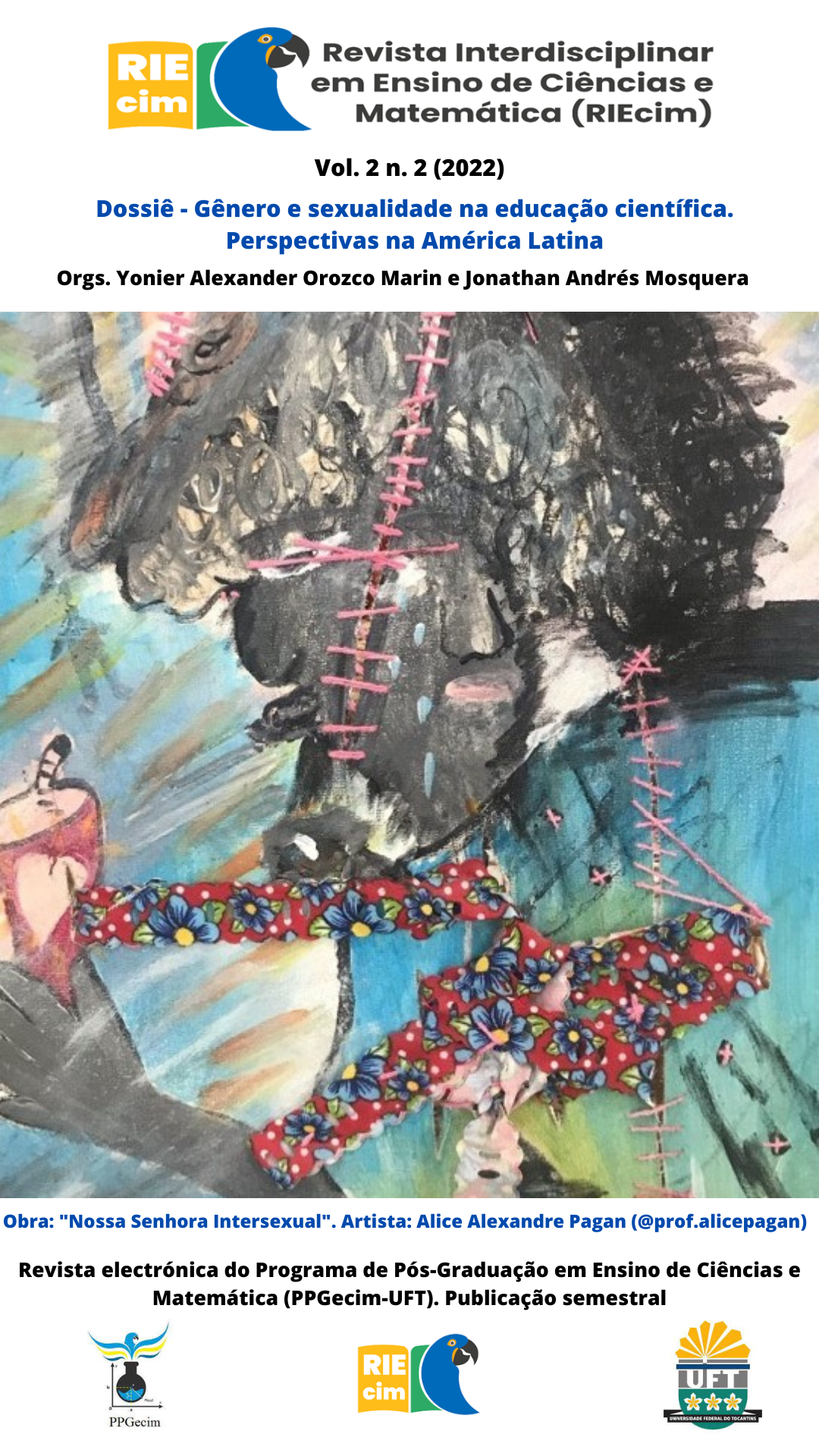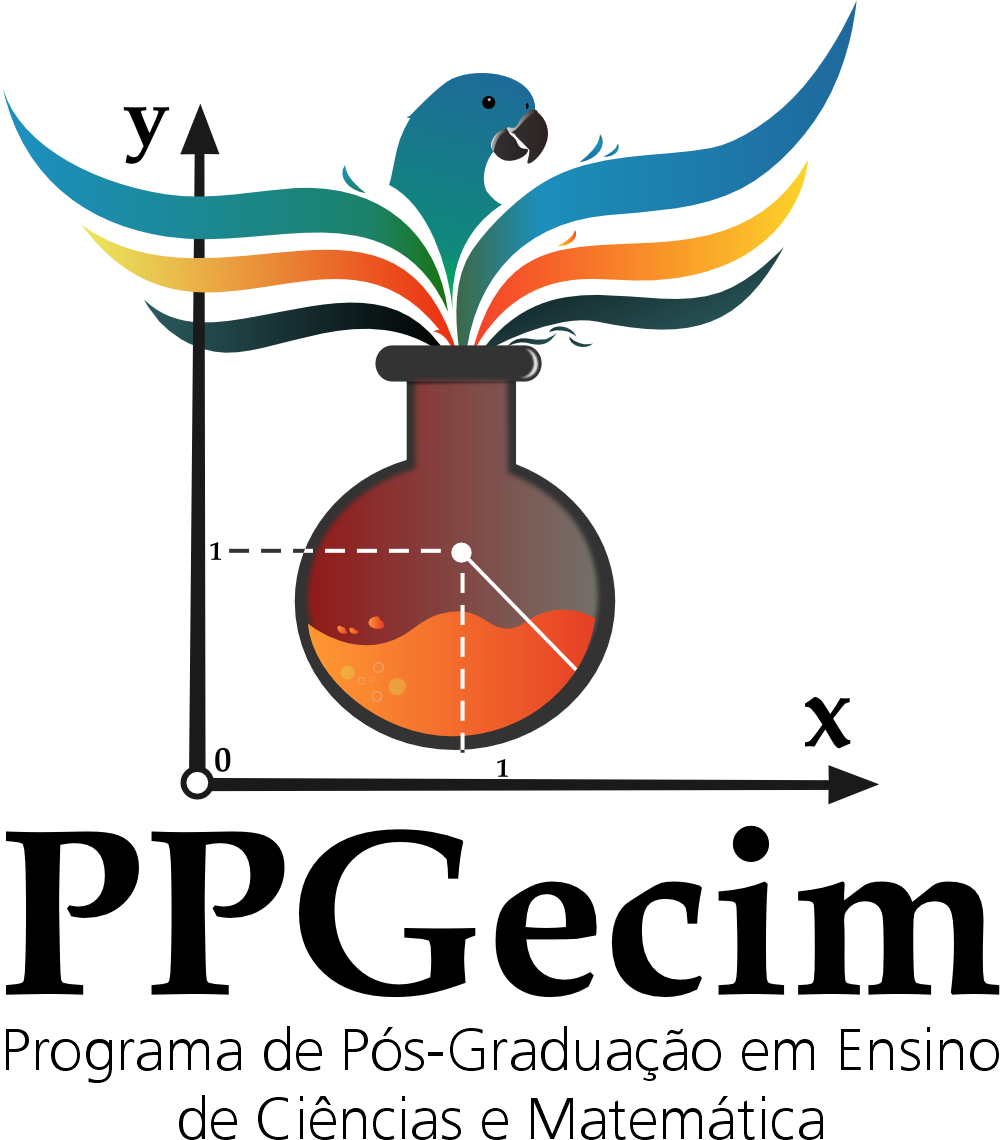TEACHING TO TRANSGRESS
THE WAYS IN WHICH WE BECOME BLACK FEMALE TEACHERS IN THE BIOLOGY UNDERGRADUATE COURSE
DOI:
https://doi.org/10.20873/riecim.v2i2.14813Keywords:
Biology Teaching, Teacher Training, ; Ethnic-Racial Relations, Black WomenAbstract
This paper is a theoretical study about the conditions of training black women Biology undergraduate as anti-racist teachers, and how the oppressions of gender and race that intersect the histories of different women can be articulated to think about their formative processes. Inspired by the experience of an Extension Project, we discuss how the constitution of a study group, the contribution of black intellectuals, and writing exercises can enable the formation of anti-racist black women teachers in biology education. We consider, with this study, that the intersections between gender and race allow us to see possible paths in the formation of black women and anti-racist teachers in biology education.
References
ABETT DE LA TORRE, P. Educación y Género: una reflexión sobre los principios de igualdad y diversidad en la educación chilena en el escenario de la reforma educativa actual. Paulo Freire. Revista de Pedagogía Crítica, 13 (16), 35-47, 2014.
AUSTIN, J. Cómo hacer cosas con palabras. Barcelona: Paidós, 1982.
BARTOLOMÉ, M. Investigación cualitativa en educación: ¿comprender o transformar?. Revista Investigación Educativa, (20), 7-36, 1992.
BUTLER, J. El género en disputa. Buenos Aires: Paidós, 2001.
CAMACHO, J. Educación científica no sexista. Aportes desde la investigación en Didáctica de las Ciencias. Revista Nomadías, (25), 101-120, 2018.
CHILE. Ley N°20.418, 28 de enero del 2010. Fija normas sobre información, orientación y prestaciones en materia de regulación de la fertilidad. Diario Oficial de la República de Chile, Chile, Santiago, 2010.
CHILE. Proyecto de Ley - Boletín N°12955-04, 07 de septiembre del 2020. Establece normas generales en materia de educación sobre afectividad, sexualidad y género para los establecimientos educacionales reconocidos por el estado. Valparaíso, 368 Cong., 89 Sess, 2020.
CORNEJO, J. Disidencias sexuales en el sistema escolar chileno: represión e invisibilización. Educ. Pesqui., Sao Paulo, 43 (3), 879-898, 2017.
GALAZ, C.; POBLETE, R. Políticas públicas educativas y las sexualidades en Chile post-dictadura: opacidades e hiper-visibilidades de sujetos LGTBI. Educar em Revista, 35 (74), 251-269, 2019.
GALAZ, C.; TRONCOSO, L.; BRAVO, S. Resistir la heterosexualización en el Educación Secundaria: Tensiones relativas a la inclusión LGTB+ en Chile. Archivos Analíticos de Políticas Educativas, 29 (145), 1-23, 2021.
GALAZ, C., TRONCOSO, L.; MORRISON, R. Miradas críticas sobre la intervención educativa en Diversidad Sexual. Revista Latinoamericana de Educación Inclusiva, 10 (2), 93-111, 2016.
GLSEN. Supporting LGBTQ Studentes by Protecting LGBTQ Teachers (Research Brief). New York: GLSEN, 2020.
GONZÁLEZ DEL CERRO, C. La ciencia en la Educación Sexual Integral: Aportes desde la epistemología y la pedagogía feminista. Revista Punto Género, (8), 55-77, 2017.
MARTÍNEZ, P. El método de estudio de caso: estrategia metodológica de la investigación científica. Pensamiento & Gestión, (20), 165-193, 2006.
MELLA, E.; REBOLLEDO, E. Factores que influyen en la implementación de una política pública de educación sexual integral: casos de Chile y Costa Rica. Revista Chilena de Derecho y Ciencia Política, 11(1), 10-35, 2020.
MINEDUC (2016). Orientaciones para el diseño e implementación de un programa en sexualidad, afectividad y género. Disponible en: https://bibliotecadigital.mineduc.cl/bitstream/handle/20.500.12365/489/MONO-411.pdf?sequence=1&isAllowed=y. Acceso en: 12 de agosto del 2022.
MINEDUC. (2016). Programa de estudio Ciencias Naturales 7mo básico. Disponible en: https://www.curriculumnacional.cl/614/articles-20720_programa.pdf. Acceso en: 12 de agosto del 2022.
MINEDUC. (2016). Programa de estudio Ciencias Naturales 2do medio. Disponible en: https://www.curriculumnacional.cl/614/articles-34453_programa.pdf. Acceso en: 12 de agosto del 2022.
MINEDUC. (2018). Oportunidades curriculares para la educación en sexualidad, afectividad y género. Disponible en: https://bibliotecadigital.mineduc.cl/bitstream/handle/20.500.12365/2121/mono-941.pdf?sequence=1&isAllowed=y. Acceso en: 12 de agosto del 2022.
MINEDUC. (2018). Programa de estudio Ciencias Naturales 6to básico. Disponible en: https://www.curriculumnacional.cl/614/articles-20719_programa.pdf. Acceso en: 12 de agosto del 2022.
MOLINA, R.; JARA, G. (2019). Capítulo 1. La Educación Sexual con especial referencia en Chile. En: MOLINA, R. (ed.), CESOLAA Curso de Educación Sexual On Line de Auto Aprendizaje, pp.12-27, 2019. Disponible en: https://educacionsexual.uchile.cl/libro. Acceso en: 12 de agosto del 2022.
MORGADE, G. Educación en la sexualidad desde el enfoque de género. Una antigua deuda de la escuela. Novedades Educativas, 184, 40-44, 2006.
MORGADE, G. Toda educación es sexual. Hacia una educación sexuada justa. Buenos Aires: La Crujía, 2011.
OCAMPO, A. La condición performativa de la Educación Inclusiva: un discurso provocativo y alterativo. En: OCAMPO, A. Cuadernos de Educación Inclusiva. Vol. III. Repensando la justicia social y la educación inclusiva. Santiago de Chile: Centro de Estudios Latinoamericanos de Educación I, 2019.
PORTA, L.; SILVA, M. La investigación cualitativa: el análisis de contenido en la investigación educativa. Anuario Digital de Investigación Educativa, (14), 388-406, 2003.
REYES, D. La gestión de la educación sexual en el marco de una política desacoplada. Tesis doctoral. Universidad de Chile, Santiago, 2016. Disponible en: http://repositorio.uchile.cl/handle/2250/152826. Acceso en: 12 de agosto del 2022.
REYES, D. (s.f.). Educación sexual en Chile: de lo macro a lo micro. Disponible en: https://www.academia.edu/2252896/Educaci%C3%B3n_Sexual_en_Chile. Acceso en: 12 de agosto del 2022.
RIVERA, M.; SEPÚLVEDA, P.; CAMACHO, J. Educación Sexual más allá de lo Biológico. Biografía. Escritos sobre la Biología y su enseñanza, 8 (16), 131-146, 2015.
ROJAS, M.; FERNÁNDEZ, M.; ASTUDILLO, P.; STEFONI, C.; SALINA, P.; VALDEBENITO, M. La inclusión de estudiantes LGTBI en las escuelas chilenas: entre invisibilización y reconocimiento social. Pensamiento educativo. Revista de Investigación Educacional Latinoamericana, 56 (1), 1-14, 2019.
UNESCO. Orientaciones técnicas internacionales sobre educación en sexualidad. Un enfoque basado en evidencia. Francia: UNESCO, 2018.
Downloads
Published
How to Cite
Issue
Section
License
Copyright (c) 2022 Leidiane dos Santos Aguiar Macambira, Kelly Meneses Fernandes , Alana Souza Alves Ferreira, Larissa Souza da Silva

This work is licensed under a Creative Commons Attribution-NonCommercial 4.0 International License.
Copyright Policy
Copyrights are retained by the authors, who grant RIEcim the exclusive rights for first publication. Authors will not be remunerated for the publication of their work in this journal. Authors are permitted to enter into separate, additional contractual arrangements for the non-exclusive distribution of the work's published version in this journal (e.g., post it to an institutional repository, on a personal website, publish a translation, or as a book chapter), with acknowledgement of authorship and initial publication in this journal. The Journal's editors have the right to make textual adjustments and adaptations to conform to publication standards.
Open Access Policy
This journal provides immediate open access to its content, following the principle that freely providing scientific knowledge to the public contributes to the global democratization of knowledge. Users can read, download, copy, distribute, print, search, or use the content for any legal purpose, respecting national copyright laws and without seeking prior permission from the publisher or the author. The opinions presented in the articles are the responsibility of the authors. The Journal does not charge Article Processing Charges (APCs).
Licensing Policy - Usage License
Licensed under the Creative Commons Attribution-NonCommercial 4.0 International (CC BY-NC 4.0) License. This license allows sharing, copying, redistributing the manuscripts published in RIEcim in any medium or format. Additionally, it allows adapting, remixing, transforming, and building upon the material, as long as proper credit is given to the author and initial publication in this journal is acknowledged.


























